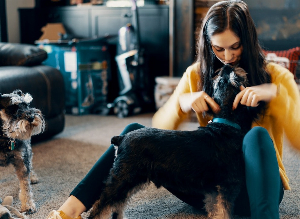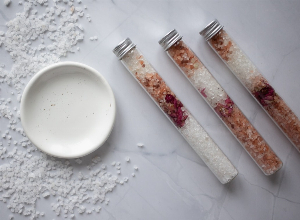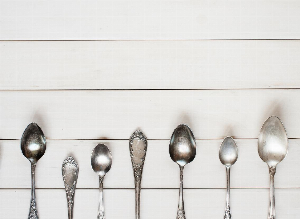Pancreatitis: "It is the most painful thing I have ever experienced".
Published Nov 30, 2022 • By Andrea Barcia
Licaberry, member of the Carenity Spain community and diagnosed with Pancreatitis almost two years ago, tells us about her diagnosis, treatments and how she has recovered from this disease.
Read her story now!

Hello Licaberry, thank you very much for agreeing to share your experience with Carenity.
First of all, could you tell us more about yourself (who you are, your family life, what you like...)?
Hi, I'm Cinthya Gonzalez, I'm 33 years old, I've been living with my partner for about 4 years, I don't have children. I am in the administrative area of an industrial machinery trading company.
I live in the city of Queretaro, Mexico. I have two beautiful Schnauzer, I love animals. I love to paint in watercolor.
You suffer from pancreatitis diagnosed almost two years ago, what were the symptoms that alerted you and led you to talk about it with your doctor? How long did it take to make the diagnosis? How many doctors did you have to go to? What tests did they do?
The first symptom was a pain, intense, sharp pain in the stomach. Nausea, vomiting, I could not tolerate food.
The next morning I went to the general practitioner, and after 3-4 days without knowing what it was, I was recommended to go to a specialist, that is, a gastroenterologist.
As the pain was decreasing with the diet recommended by the general practitioner, I let a few weeks go by. When I found a specialist, he performed imaging and blood tests, and a CT scan with contrast (where they make you pass iodine). They discovered that it was definitely not the gallbladder, and that there was something obstructing the main duct of the pancreas, they did not determine at that time if it was a cyst, a stone, or cancer.
The specialist recommended me to look for someone who could perform an ERCP (endoscopic retrograde cholangiopancreatography), which means that they enter through the mouth with tubes and a special camera (general anesthesia is used, you do not feel anything until afterwards ☹). This procedure helps to determine what it is, and where the problem is, and if the obstruction can be removed at that time.
Unfortunately I do not have insurance to cover an expense of that size, we visited about 4 specialists. We looked for other opinions and the only thing they told us was that I was in serious trouble, since it was an important gland for the body to function, and that the procedure had to be rushed.
How did you feel when you were told the diagnosis? Did they give you all the information you needed to understand the disease?
Well, the news was, without exaggeration, worrying, it had me in a state of constant anguish, I started crying, very scared, not knowing what to do or who to turn to, someone to give me hope or some alternative treatment.
One of the doctors we visited was the one who gave us the realistic and stark picture we needed (but didn't want to hear). He explained to us what could happen if they couldn't remove what was in there, what would happen if it swelled to the point of no return (diabetic coma, intensive therapy, recovery not guaranteed, costs, death...).
Could you tell us more about pancreatitis? In your case, do you have frequent episodes of pancreatitis, what symptoms do you experience and do you know what caused it?
Pancreatitis is a condition that develops in the pancreas due to several situations. The main one is caused by diet and excess of alcohol and cigarettes. It usually occurs in people between 40-50 years old, and rarely in people under 30 years old.
In my case it was due to a stone in the main duct, which was stuck by a malformation of birth of the duct. The explanation that the doctors gave me is that we all produce stones throughout our lives, in kidneys, gallbladder, pancreas, and our body is so wonderful that many times it is responsible for expelling them and we do not even realize it. But sometimes it can't dispel all the stones, especially the big ones.
I am diagnosed with chronic pancreatitis (produced by the prolonged and constant obstruction of the stone), which means that I can have it for the rest of my life, there are some days where I feel a little pain and the abdominal area is inflamed but it gets better when I stop eating fats.
What treatments are there for pancreatitis? In your case, what treatments do you follow, do you feel they benefit you, have you experienced any side effects?
It is mainly treated with food, I was restricted from sausages, animal fats in large quantities, and spicy food. In general I eat everything but in moderation.
I am prescribed pancreatin to help digest food and avoid inflammation. When I have pain (tolerable) I take pinaverium bromide and hyoscine.
You told me that you underwent a risky operation, was it because of pancreatitis? Why did you have to undergo it? Could you tell us more about this experience?
The operation I underwent was because the lithium (stone) was much larger than the size of the duct. To remove it by ERCP would have been fatal because of the risk of tearing this delicate gland.
Once that option was exhausted, the surgeon opted to perform a major surgery that meant opening my abdomen, cutting the pancreas, extracting the stone and leaving a large enough space for me to continue expelling stones without any problem, she connected the pancreas with the small intestine, in the studies they found a smaller stone in the head of the pancreas, that is, my body will continue to produce rocks until who knows when, only now they will have a place to come out.
As in all the interventions, there was the risk that if it became too inflamed by the manipulation of this, complications would come, which had been explained to us before, from mild inflammation to damage without reversal of this gland and / or death.
It is the most painful thing I have ever experienced, I just completed 6 months since the operation and I can barely say that I am starting to feel the benefits, it has been very hard, slow, complicated, I have learned to listen to my body.
Have you tried any natural complementary treatment? If yes, which ones, did they help you, would you recommend them to other patients with the same disease?
When I have discomfort I take teas - cedron, chamomile, cinnamon, ginger... they help me when I feel inflammation and general discomfort.
I also took drops of different tinctures, that's what they are called here in Mexico. They helped me to counteract the symptoms.
Have you had to adapt your lifestyle or your diet because of pancreatitis? How?
Hygiene became strict only when I was recovering from surgery, because of the size of the opening and the drain I had on one side.
Food, yes, is restricted to more natural and less processed things, replacing guilty cravings with something natural and light. No alcohol, no cigarettes.
Do you suffer from any other disease? If so, which one?
I don't consider it a disease, it's more of a condition, which I was also born with, polycystic ovary.
Are you able to talk easily to your loved ones about the disease, do they understand, do you feel they support you, what about the medical staff?
It was very easy to talk to my family. My mom was by my side through the hardest part, she understood my pain and supported me unconditionally.
My partner found it hard to believe that it was something so serious. it was as if he wanted me to leave the situation aside and if I did the anguish or the pain would go away, I understand that and I am grateful for the support in his own way.
The surgeon and her team have been exceptional people, under their position as doctors and they got me out of that situation.
What is the impact of the disease on your private and professional life? To what extent has it been able to incapacitate you? Are there things you can no longer do? If so, which ones?
The impact continues to weigh on my life, in both areas. I have stopped doing many things because the pain is disabling. I have had problems at work because of all the days that the disease knocked me down, the days in the hospital, or visiting doctors, the two months I was given to recover from the surgery. If it were not for the fact that it is against the law to fire me in this condition, I would have been unemployed for months.
There are still days when getting up in the morning is an almost impossible task. I have yet to exercise, which would be quite good, physically and psychologically speaking. I take light walks, walk up and down stairs with no problem, and do housework with a little more effort.
You accepted to testify because in your case, it was very hard to find the necessary information about pancreatitis, why do you think there is such a lack of information? What do you think should change around these diseases?
What was difficult for me was mainly finding information about someone who had had the same thing happen to me. The lithium in the main duct, what I found the most about it were cases of people with some type of cancer. But nothing that told me what to expect, in fact with the multiple doctors we consulted, we were told that it was something very rare; that a stone would lodge there, the chances of it happening were very few, and that of course, made me feel more afraid.
"If you put in the search engine stones in the pancreas, it automatically sends you to stones in the bile ducts and gall bladder. And for the word pancreas, only cancer cases..."
Possibly the lack of information is because there are not many cases, or they are under-reported because of the relative "ease" with which most have been treated.
Definitely, if I didn't suffer from it, I would never know that this disease exists.
What are your plans for the future?
To grow professionally. A year ago I finished my university studies and I want to continue expanding my knowledge and maybe start a business.
And of course, to recover my health as much as possible and to try to resume the activities I used to do before.
What advice would you give to patients who also suffer from pancreatitis?
To have a lot of patience and faith that the treatment will work. Take good care of your diet. And lean on your loved ones. It is not easy, but giving up is not an option.
A final word?
I wish there were more places like Carenity that in addition to providing information for our ailments, gave us the opportunity to relate a more human experience.
Many congratulations to your team.
And thank you for letting me participate.
Many thanks again to Licaberry for having given us this testimony!
Did you find this interview useful?
Click "Like" and share your opinion and your questions with the members of the community below in the comments!
Take care!

 Facebook
Facebook Twitter
Twitter


